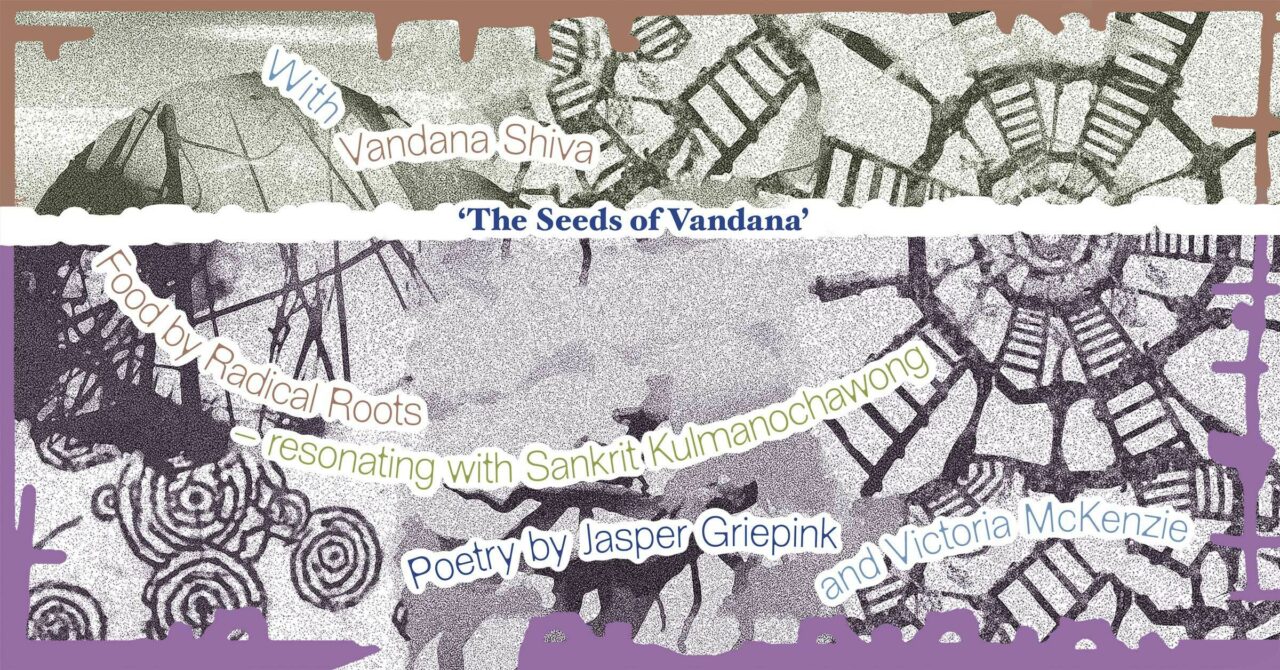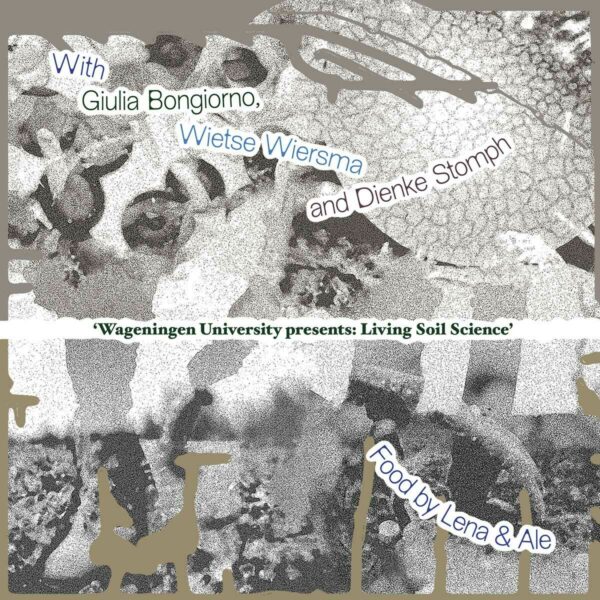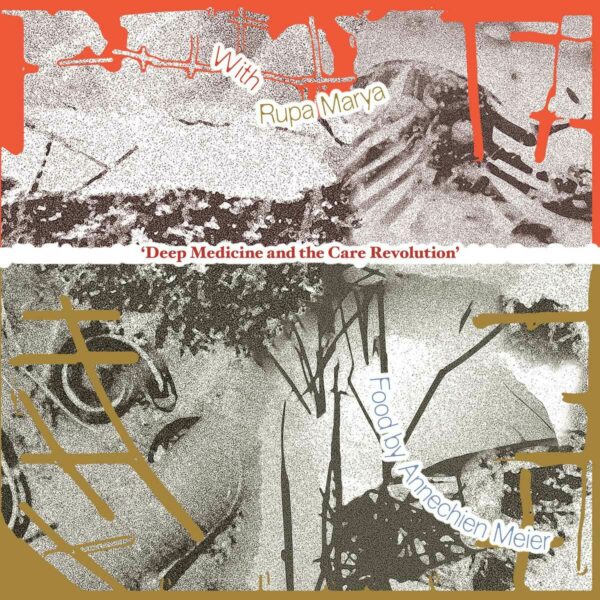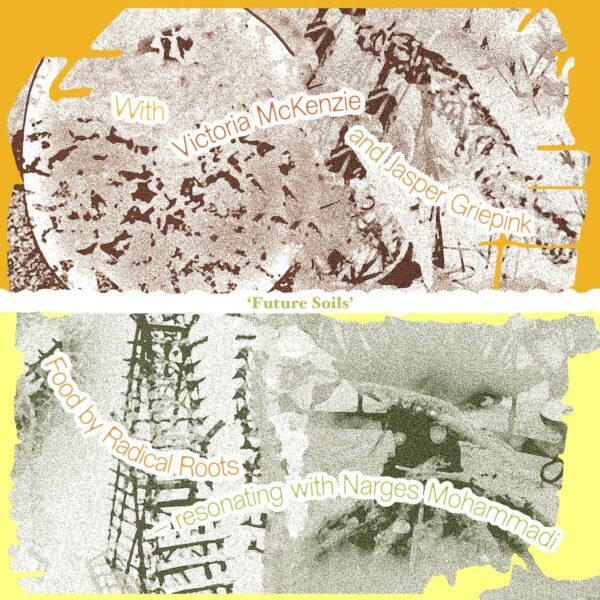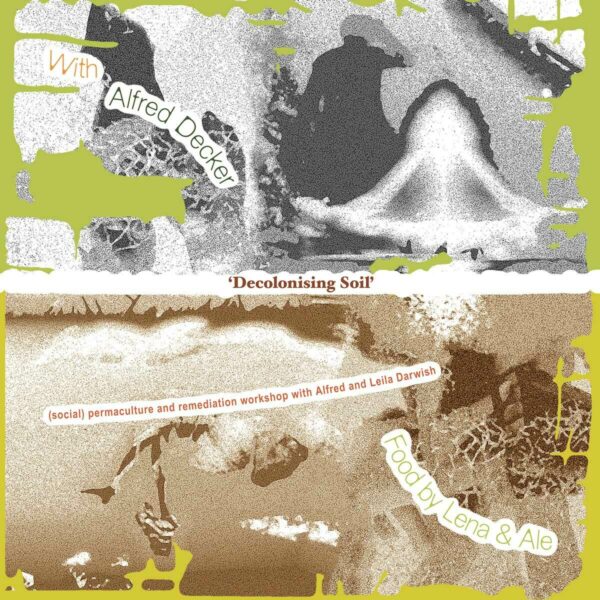Studium Generale: The Seeds of Vandana
Location: KABK Auditorium
Watch below a recording of the lecture on 1 December 2022
Playlist
Albert Howard: The Soil and Health: A Study of Organic Agriculture (Culture Of The Land) 2007
Vandana Shiva. Soil Not Oil: Environmental Justice in an Age of Climate Crisis. 2015.
Vandana Shiva. Agroecology and Regenerative Agriculture: Sustainable Solutions for Hunger, Poverty, and Climate Change. 2022.
Dirt. The Movie: http://www.dirtthemovie.org
Symphony of Soil (video)
We are deeply honoured that the great activist and academic Vandana Shiva will visit our academy, for a lecture and a live interview with our hosts Victoria Mc Kenzie and Jasper Griepink.
Guests: Vandana Shiva
Moderation: Victoria McKenzie en Jasper Griepink
"Our health begins in healthy soils. Healthy soils are living systems. The soil is not an empty container for pouring synthetic chemical fertilizers. Plants are not machines, running on NPK from factories and mines.
We know that the Soil is living. Prof. Rattan Lal, who received the 2020 World Food Prize, has said, “I believe Soil is a living thing. That’s what soil health means. Soil is Life. Every living thing has rights. Therefore soil also has rights.” That is why indigenous cultures call the land and soil Mother Earth, Bhoomi Ma, Pachamama.
Albert Howard reminds us:
“The soil is, as a matter of fact, full of live organisms. It is essential to conceive of it as something pulsating with life, not as a dead or inert mass. There could be no greater misconception than to regard the earth as dead: a handful of soil is teeming with life. The living fungi, bacteria, and protozoa, invisibly present in the soil complex, are known as the soil population. This population of millions and millions of minute existences, quite invisible to our eyes of course, pursue their own lives.”
― Albert Howard, The Soil and Health: A Study of Organic Agriculture
The ancient Bhumi Sukta, the prayer to the Earth in the ancient Atharva Veda recognizes that the Earth is mother, and we are children of the earth:
“Impart to us those vitalizing forces that come, O Earth, from deep within your body, your central point, your navel, purify us wholly. The Earth is mother; I am child of Earth.”
Our energy as food comes from the Earth. And because the Earth is our Mother, we cannot violate her with poisons and chemicals, heavy machinery that tramples and compacts the living soil. The Atharva Veda invokes the prayer to Prithvi, the Earth, which is also about the consciousness of restraint and respecting limits:
“Let what I dig from thee, O Earth, rapidly spring and grow again. O Purifier, let me not pierce through thy vitals or thy heart”
Today's dominant policies and laws seem to be saying the opposite to the Earth
“We will dig so deep and so violently, we will bulldoze so brutally, on such a large scale and at such a high speed, that we will tear through your vitals and your heart, ensuring that nothing can grow from you again."
Both ecological science and our ancient wisdom teaches us that all life depends on soil. But we are now unthinkingly adopting the illusion that human progress is based on how fast we can destroy, bury and consume the soil."
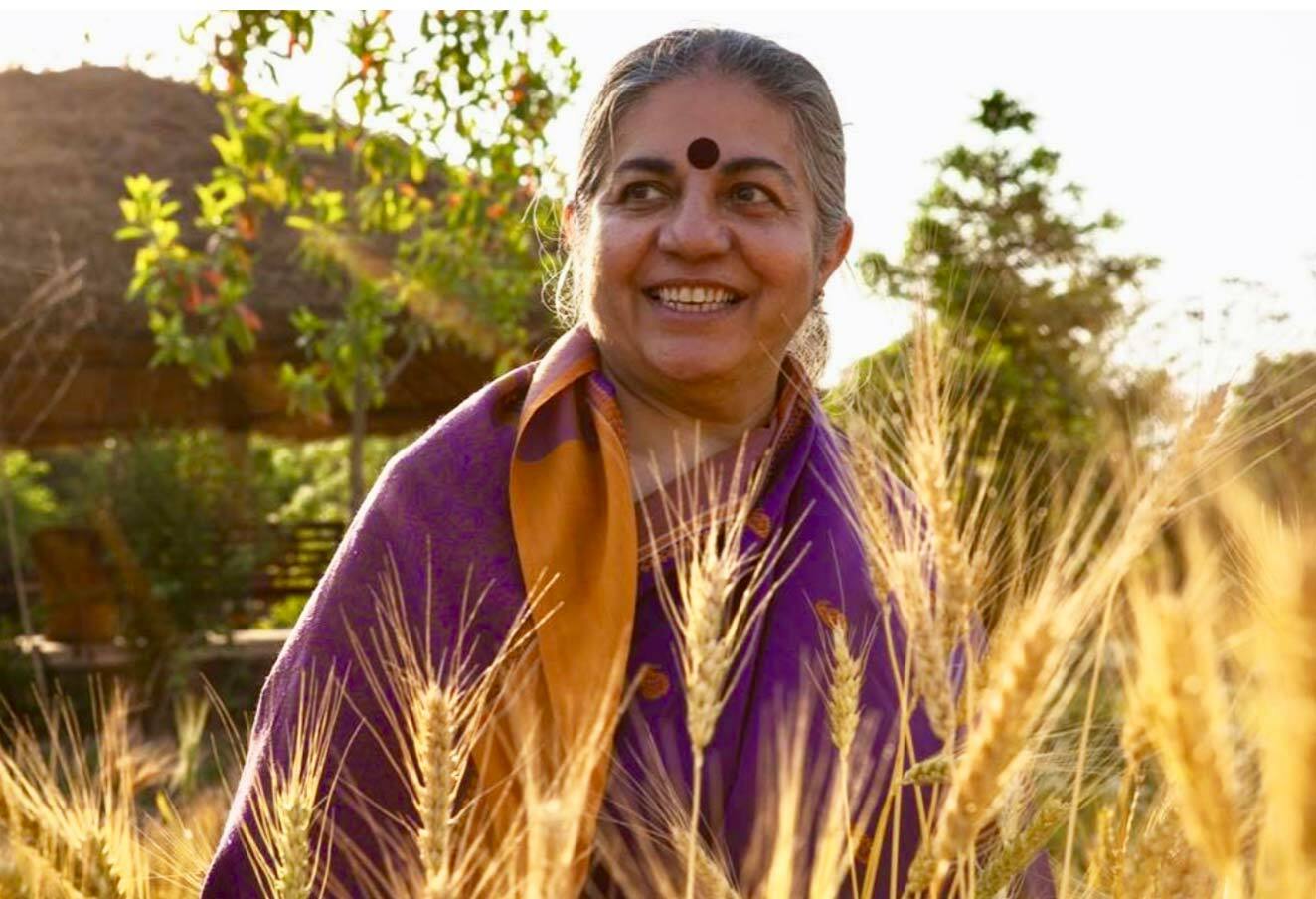
Dr. Vandana Shiva is trained as a Physicist and did her Ph.D. on the subject “Hidden Variables and Non-locality in Quantum Theory” from the University of Western Ontario in Canada. She later shifted to inter-disciplinary research in science, technology and environmental policy, which she carried out at the Indian Institute of Science and the Indian Institute of Management in Bangalore. In 1982, she founded an independent institute, the Research Foundation for Science, Technology and Ecology in Dehra Dun dedicated to high quality and independent research to address the most significant ecological and social issues of our times, in close partnership with local communities and social movements.
In 1991, she founded Navdanya, a national movement to protect the diversity and integrity of living resources, especially native seed, the promotion of organic farming and fair trade. In 2004 she started Bija Vidyapeeth, an international college for sustainable living in Doon Valley in collaboration with Schumacher College, U.K.Dr. Shiva combines the sharp intellectual enquiry with courageous activism.
Time Magazine identified Dr. Shiva as an environmental “hero” in 2003 and Asia Week has called her one of the five most powerful communicators of Asia. Forbes magazine in November 2010 has identified Dr. Vandana Shiva as one of the top Seven most Powerful Women on the Globe.
Dr. Shiva has received honorary Doctorates from University of Paris, University of Western Ontario, University of Oslo and Connecticut College, University of Guelph.Among her many awards are the Alternative Nobel Prize (Right Livelihood Award, 1993), Order of the Golden Ark, Global 500 Award of UN and Earth Day International Award. Lennon ONO grant for peace award by Yoko Ono in 2009, Sydney Peace Prize in 2010, Doshi Bridgebuilder Award, Calgary Peace Prize and Thomas Merton Award in the year 2011,the Fukuoka Award and The Prism of Reason Award in 2012, the Grifone d’Argento prize 2016 and The MIDORI Prize for Biodiversity 2016, Veerangana Award 2018, The Sanctuary Wildlife Award 2018, International Environment Summit & Award 2018 and Amrita Devi Award 2021.
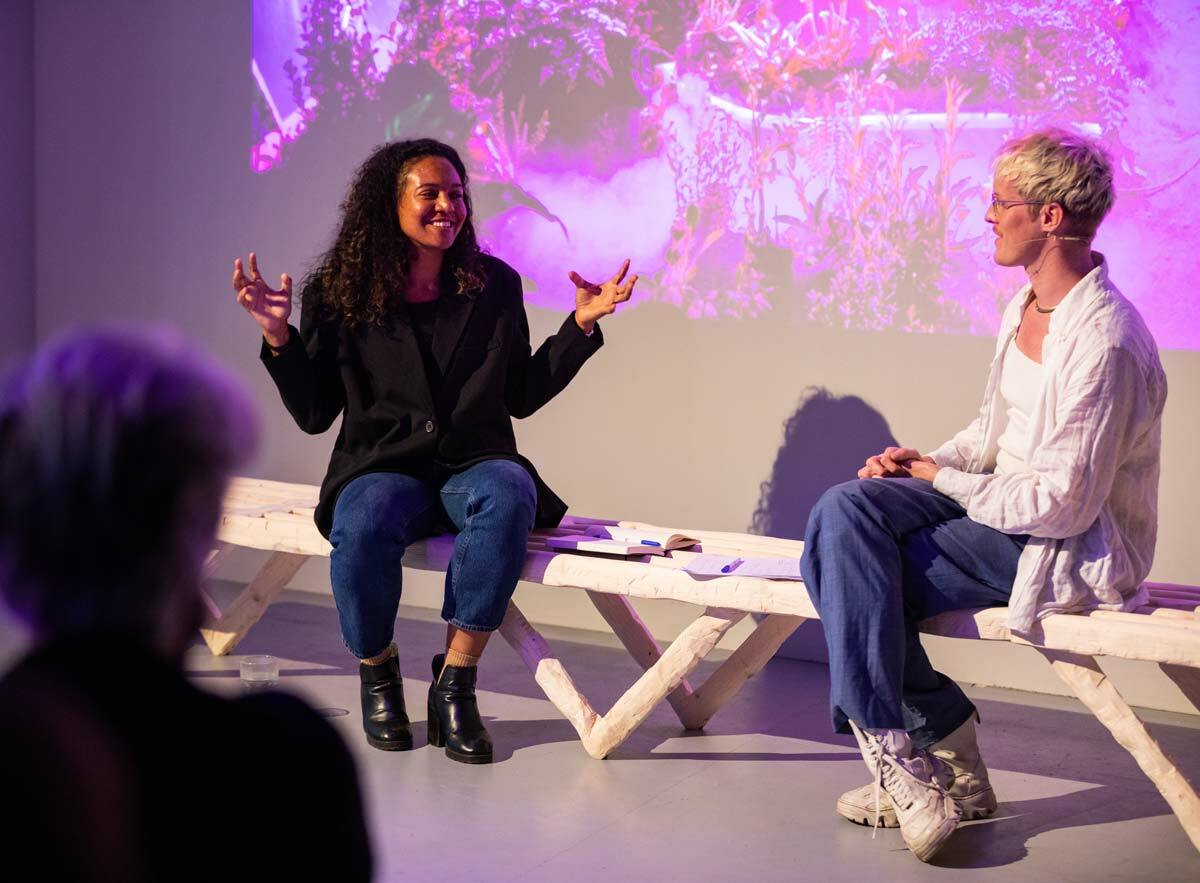
Victoria McKenzie (she/her) is an academic-activist, educator and artist. Her work focuses on the interconnections and entanglements of the Earth where the realms of the individual, collective (human and more-than-human) and systems align.
Trained in Research Architecture and Ecology, Victoria currently runs an architectural-research agency called ‘RRA’ Radical Research & Re-storying Agency which is informed by the question: “how can the precolonial past inform a decolonial future”. Both Victoria’s research and practice are grounded in the ways in which building, being and communing are connected. She has worked with a variety of architectural practices and arts institutions such us ICE Institute for Creative Exchange, Cittadellarte, Triennale di Milano, Amisacho Restoracíon, Somerset House, Forensic Architecture, and Royal Academy of Design at the Hague—to connect art, design, politics and ecology in order to continuously communicate, dream and make new futures into existence.
Handles: @ofthisearthsoil
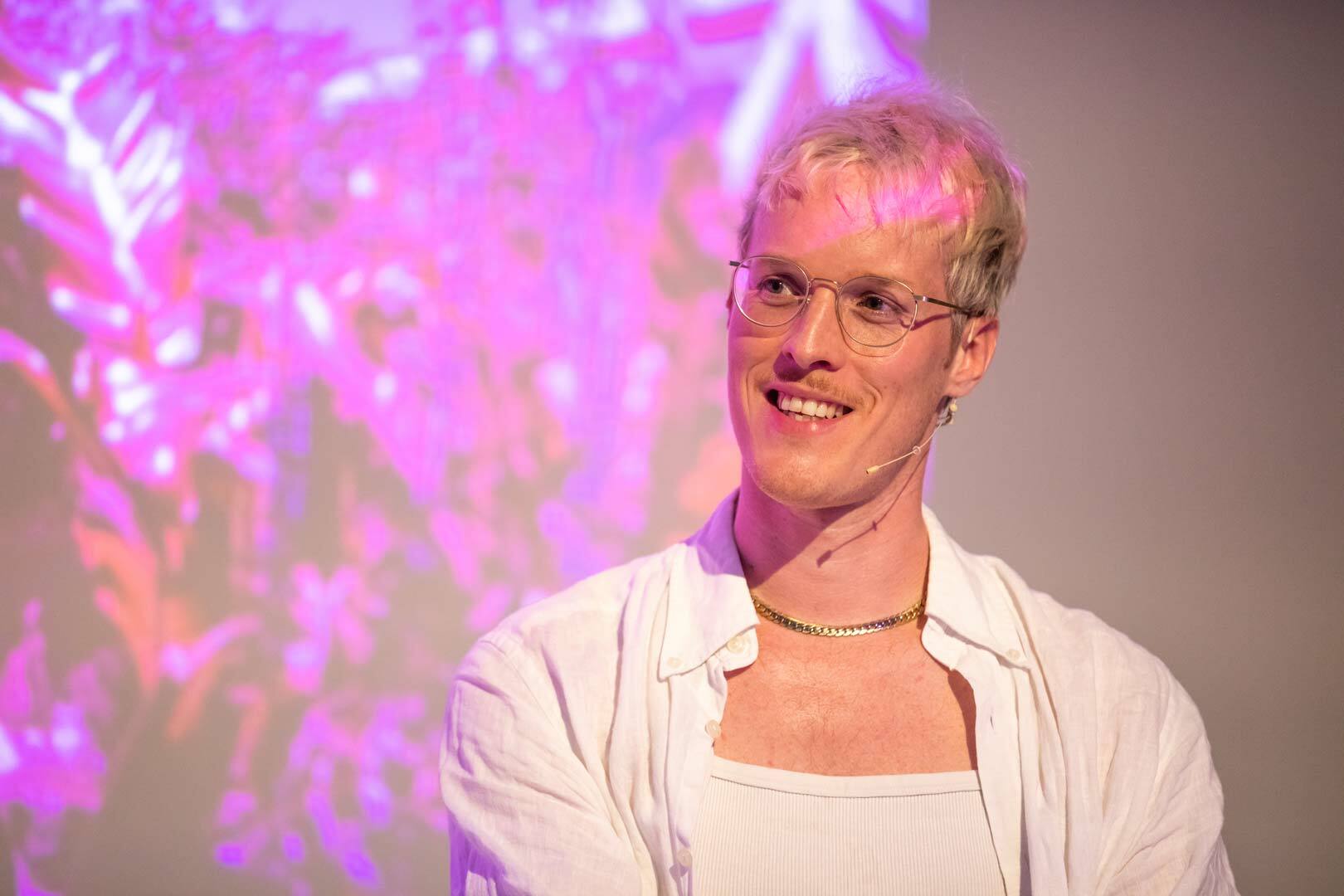
Artist and writer Jasper Griepink (he/they) examines spirituality, ecology, gender, language and the political space between these subjects. In their recent works, Griepink operates as a hybrid between a nature priest and a sassy musician, immersing audiences in stories and multi-sensorial installations that connect the folkloric world of the druids and nature spirits with the glamour of music concerts and modern ritual get-togethers. Via participatory performances, installations, research & words they wish to forward ontological entanglements that provide more queer space for embodied eco-ecstasy and the mytho-ecological re(story)ation of the planetary spaceship. Their latest show EARTHRHRINE was a speculative and contemporary sacred space for soils, exhibited at MU Hybrid Arthouse, Eindhoven. The show questioned how soil could be seen and experienced as sacred, and how a grounded reverence for the natural world could be rekindled in critical and exciting ways.
Jasper Griepink obtained an MFA from the Piet Zwart Institute in 2013. They have made certified explorations of Somatic Psychotherapy, Reiki Healing, Permaculture Design, Natural Building, and Speculative Writing. Currently, they work as a practice tutor at the MA Ecology Futures (MIVC|St Joost) and are a curator for the manifestation RE_NATURE. They exhibited internationally at MuHKA(BE), Tidens Krav (NO), The Manse (USA), Art Villa Garikula (GE) en Te WhareToi (NZ) and nationally at MU, Goethe Instituut, Garage Rotterdam, Lustwarande, TENT, MELLY, Onomatopee, Het Nieuwe Instituut, Mediamatic, IMPAKT, Art Rotterdam, W139, 1646, Roodkapje, Museum IJsselstein and Kunsthuis SYB, amongst others.
Handles: @jaspergriepink
Website: www.jaspergriepink.nl
Food intervention
Radical Roots with Sankrit Kulmanochawong
This intervention is an assembly of multiple sources of grain based sustenance; from wheat, rice, tapioca, buckwheat, maize, barley, sorghum that are traditionally made in a flat form. These stacked layers of flat ‘bread’ form a patchwork field of grains. It is an invitation to engage and be eaten, from the top layer down; revealing different elements that are reminiscent of a farmed field and its layers of vegetation, organic matter and soil.
Sankrit Kulmanochawong (he/him)’s work is inspired by everyday life. His intervention shines a light on visual discrepancies and cultural clashes that often go unnoticed. Born in Bangkok and based in Amsterdam, Sankrit uses food, graphic design and imagery to focus on the minor details that get lost in the world. He is currently working in the project kitchen at the Sandberg Instituut where he often explores the potential of food to activate and facilitate conversations within a social gathering.
1 December - Screening of The Seeds Of Vandana
Time: 15:00- 16:30
Place: KABK Auditorium – capacity 150 seats (priority will be given to students)
